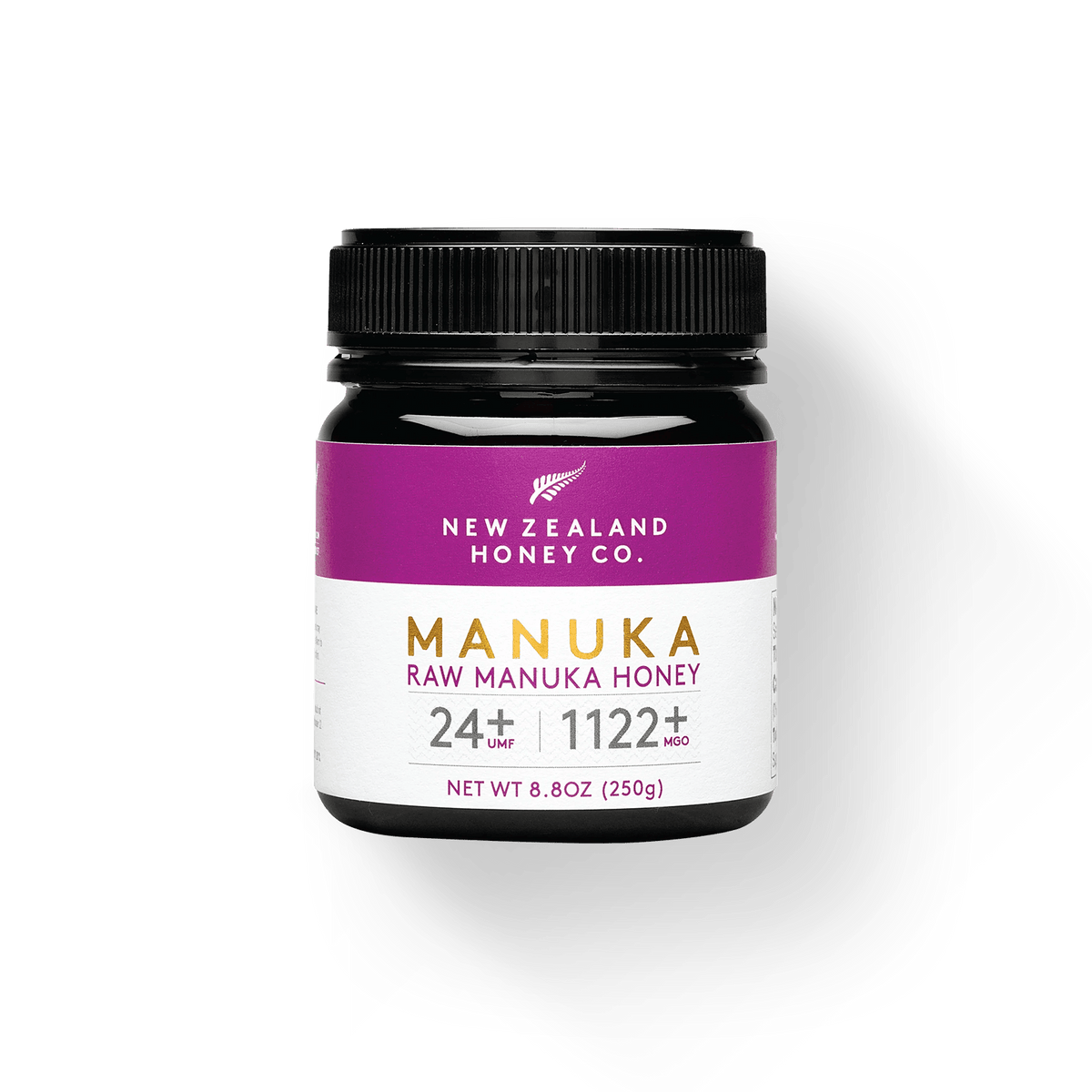Manuka Honey Face Mask
Honey has been used topically for centuries for its skin health properties, dating back as far as the renowned Cleopatra who was said to add honey to her milk baths. Nowadays, many Hollywood stars are said to include Manuka Honey as a part of their skincare regime. Scarlett Johansson has been quoted saying "It really adds an amazing glow and your skin is so soft afterward. It pulls out the impurities—and it’s a nice foundation, especially if you are going to a big event where you want a great glow."
Research in the last 20 years has shown Manuka Honey contains beneficial properties that are unique and not found in other honey¹. It is these unique scientific elements that make it a perfect partner for any skincare regime.
Why use Manuka Honey for Skincare?
Manuka Honey is a completely natural superfood with a unique set of characteristics that come from the medicinal Manuka bush which is native to New Zealand. Manuka Honey is a natural humectant, it draws in a retains moisture which makes it deeply nourishing to your skin and can leave you with a natural, dewy glow.
Manuka Honey also has a low pH of between 3.2 and 4.5, which is beneficial to heal and help balance the skin². It can help remove dead skin cells, while it's reported anti-inflammatory properties can reduce inflammation and redness.³
Many people are now discovering these benefits of Manuka Honey and are incorporating this miraculous natural ingredient into their skincare routines. If you want true clean beauty - use this honey in its raw, unpasteurised state, straight out of the jar.
What Honey should I use?
Premium Manuka Honey that is exported from New Zealand must first pass strict testing requirements to ensure that it is a monofloral Manuka Honey. This means that it comes predominantly from the Manuka bush and therefore contains the unique and beneficial properties that make it the right honey for your skincare. In addition to the testing required by the New Zealand government, our honey is further tested and certified by the UMFHA. We’ve written more on this in a separate article you can read here.
It is important to choose a Manuka Honey that is UMF™ certified which ensures it contains the elements needed for your skincare use. The UMF™ grading scale typically starts at a UMF™ 5+ and our highest-graded honey is currently a UMF™ 26+.
We would recommend using a UMF™ 10+ or greater. The higher the UMF™ number the higher the beneficial properties in the Honey. They increasingly become more effective against harmful bacteria as the grading number increases so a more potent and effective treatment would ideally use a UMF™ 15+, UMF™ 20+ or UMF™ 24+ Manuka Honey.
You can read more about the science of Manuka Honey here.
Hopefully, you now have a good understanding of what Manuka Honey to use for your skincare so we’ve prepared a great Manuka Honey Mask for you below.
Remember, you can always contact us with any questions you may have.
Manuka Honey Mask
We recommend applying this mask after you have cleansed your face to remove dirt and makeup. This helps your skin to be best prepared for the mask to have the best effect.
- Using a clean makeup brush or clean fingers apply a generous amount (1 Tablespoon) of Manuka Honey to your face and down your neck. The layer should be reasonably thick and evenly spread.
- Leave for 30 minutes. It does run slightly down your face as your body temperature melts the honey. Put a towel below your neck on your chest and lie down. This is a really good chance to have time out of your busy life. Read a book, listen to music or a podcast or even sleep while our Manuka Honey works its magic.
- Remove with a warm face cloth or in the shower.
Check out some of our other skincare tips:
- All Natural DIY Turmeric and Manuka Honey Face Mask
- Manuka Honey Body Butter
- DIY Manuka Honey and Rosewater Face Mask
- What is the best Manuka Honey for Scars
- What is the best Manuka Honey for your face
- What is the best Manuka Honey for Acne
- Manuka Honey Wound Care: Will It Help You To Recover?
1. https://www.mydomaine.com/manuka-honey-benefits
2. https://draxe.com/beauty/holistic-skin-care-naturally-healed-facial-scars/
3. https://www.ncbi.nlm.nih.gov/pmc/articles/PMC3609166/
